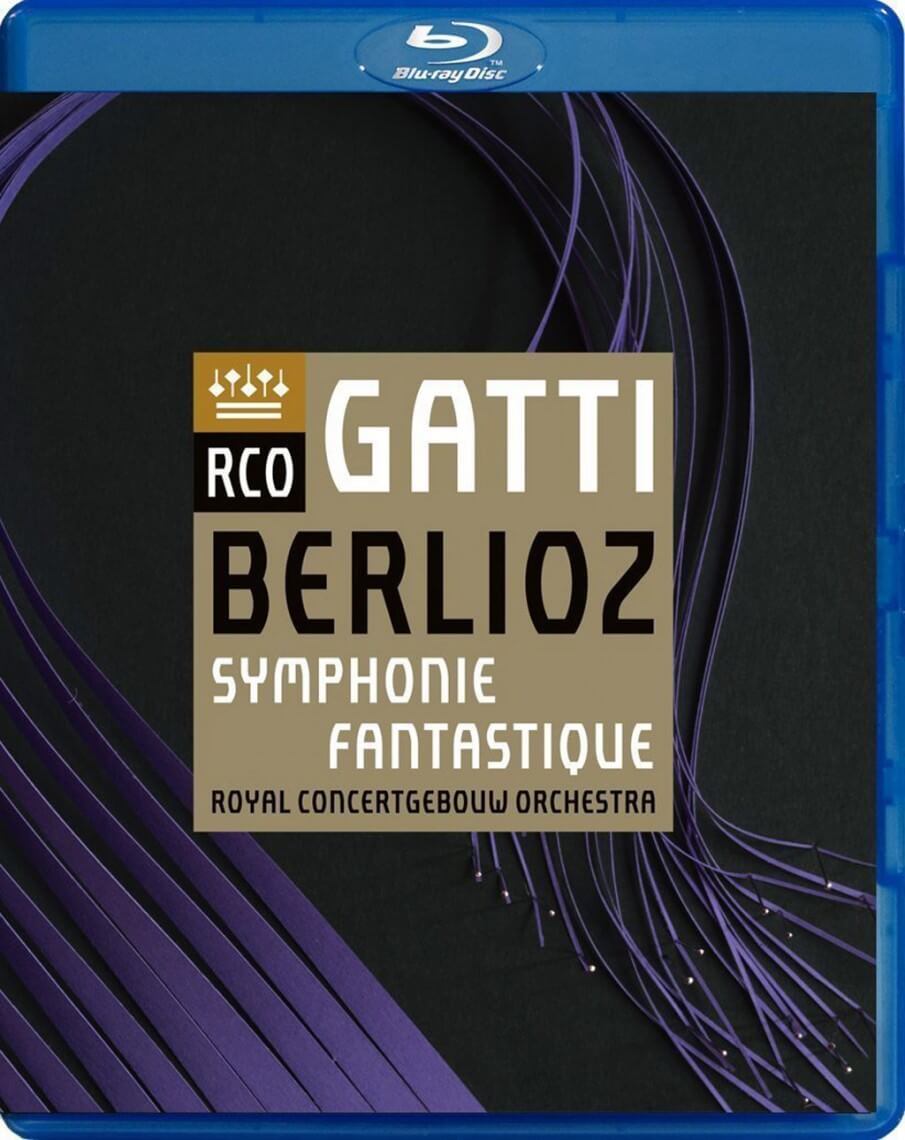
It is always a thrill to see the great Royal Concertgebouw Orchestra (RCO) playing in its home hall, which is not only an acoustical marvel among international concert halls, but also beautifully designed. The orchestra sits on risers onstage, with the percussion at the very back. Behind the percussion, a level above, is a magnificent organ with a glorious array of pipes flanked by blocks of audience seating on either side.
The conductor makes his entrance through a door to the right of the organ, 50 feet above stage level, walking down past rows of audience members, through the bass and cello sections, down to the podium — a daunting experience for any conductor or soloist. Conductor/pianist Christoph Eschenbach once confided to me that when he debuted at the Concertgebouw, he was incredibly nervous, not just about the concert, but about that descent. Alas, he did in fact trip and tumbled down the stairs. No doubt, others have done the same.
The RCO concert chronicled on this new Blu-ray disc — Daniele Gatti conducting – appears to have gone off without incident. But then, it is an amalgam of three performances; the pratfalls, if there were any, could have been edited out — unless they occurred on all three nights!
In any case, this was a very special event in the life of the orchestra, whose chief conductors over the years have included Willem Mengelberg, Eduard van Beinum, Bernard Haitink, Riccardo Chailly, and most recently, Mariss Jansons. With this concert, Gatti was giving his first concert as new chief conductor of the RCO.
The major work on the program was Berlioz Symphonie fantastique, a very familiar piece, to which Gatti brings new insight. In a transcribed interview in the program booklet, Gatti, discussing the myriad details in the score that are often overlooked, or interpreted differently by other conductors, says: “If we could focus on the tiny details, and less on the grand gestures, we may be able to give the audience an aspect of Berlioz which is not often heard.”
One such detail occurs in the “March to the scaffold”; in Gatti’s words, “Berlioz directs the timpanist to play the sextuplets in the march with one hand. This is a precise indication of the tempo. When you play with two hands, you can beat very quickly, but you can’t with just one.”
In this performance of the Symphonie fantastique, such attention to detail pays great dividends. Dynamics are carefully calibrated, balances are nearly perfect, and even secondary parts often emerge with unusual clarity. And yet, I wonder if Gatti hasn’t sometimes lost sight of the overall expressive power of the piece. Sometimes less control allows for greater freedom of expression. That said, the quality of the playing is never in doubt; this is an outstanding performance. At the end, not only the audience, but the players themselves give Gatti a prolonged ovation.
The bells in the last movement of the Symphonie fantastique are rendered by vertical chimes in most orchestras, but not by the RCO. This orchestra uses what looks like two large bells turned upside down. As a point of interest, when the Berlin Philharmonic played this piece in 2001 in Istanbul, the percussionists used even bigger bells turned right-side up, which produced an even richer sound. That performance, conducted by Mariss Jansons, remains one of the best available on DVD (EuroArts 20 51229).
Franz Liszt’s symphonic poem Orpheus seems to me a neglected masterpiece. Gatti obviously loves the music, giving it as beautiful a performance as one could imagine.
In the case of Wagner’s Tannhäuser Overture, as in Berlioz’ Symphonie fantastique, each note is in its proper place and no detail has been overlooked, but the cumulative power of the piece, especially in the final section, is all but missing.
Perhaps Gatti was trying too hard in his first concert as chief conductor of the RCO. Yes, attention to detail can, and has, on this recording, paid great dividends; that said, taken too far, it can stifle the spirit of the piece. Let’s hope that as time goes by, Gatti will loosen up and more often let the music speak for itself.
#LUDWIGVAN
Want more updates on Toronto-centric classical music news and review before anyone else finds out? Follow us on Facebook or Twitter for all the latest.
- SCRUTINY | TSO Lets Berlioz Do The Talking In Season Opener - September 21, 2018
- RECORD KEEPING | Even Yannick Nézet-Séguin Can’t Make Us Love Mozart’s La Clemenza di Tito - September 6, 2018
- RECORD KEEPING | Giovanna d’Arco With Anna Netrebko Explains Why The Best Operas Survive - August 30, 2018



